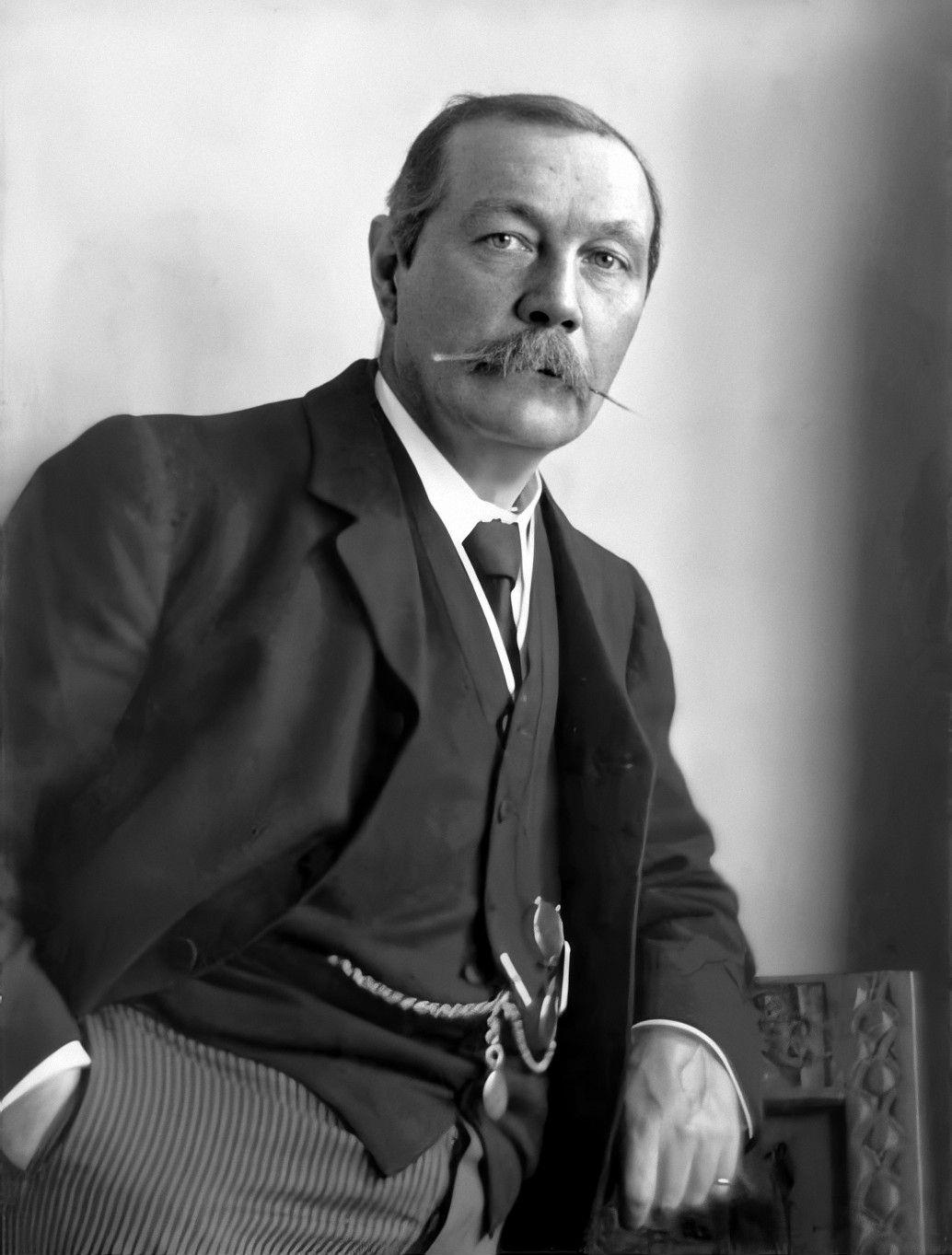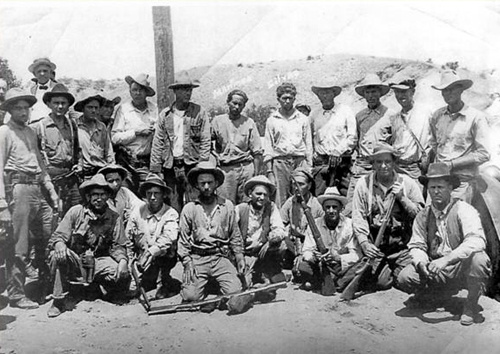|
James B. Hume
James B. Hume (January 23, 1827–May 18, 1904) was one of the American West's premier lawmen. Born in Stamford (town), New York, Stamford Township, Delaware County, New York, Delaware County, New York (state), New York, he left home in 1850 headed for the gold fields of California with his brother John. Hume panned gold and mined for a number of years in addition to operating a trade store off and on. In 1860 he began his career as a peace officer serving as a deputy tax collector for El Dorado County, California. In 1864 he was elected City Marshal of Placerville, California, and in 1864 hired as Undersheriff of El Dorado County. He ran for Sheriff in 1865 and remained in office until 1870. In 1871 Wells Fargo, Wells, Fargo & Company hired him as a detective, but gave him a year's leave in 1872 to serve as deputy warden of the Nevada State Prison. He became one of the most prominent detectives of the times. He married Lida Munson on April 28, 1884, and had a son, Samuel Jame ... [...More Info...] [...Related Items...] OR: [Wikipedia] [Google] [Baidu] |
Stamford (town), New York
Stamford is a town in Delaware County, New York, United States. The population was 2,000 at the 2020 census. The town is in the eastern part of the county and has a village called Stamford. Geography The northeastern town line is the border of Schoharie County. The town was organized in Ulster County in 1792 and transferred to newly organized Delaware County from Ulster County in 1797. Area was taken to organize all of Roxbury town in 1799 and part of Bovina town in 1820. The town gained area north of Hobart village from Harpersfield and Kortright towns in 1834 to arrive at its current boundaries. According to the United States Census Bureau, the town has a total area of , of which is land and , or 0.22%, is water. The town lies along the upper reaches of the West Branch Delaware River, which forms the town's northern border. Demographics At the 2000 census there were 1,943 people, 794 households, and 521 families in the town. The population density was 40.1 people per squa ... [...More Info...] [...Related Items...] OR: [Wikipedia] [Google] [Baidu] |
Calaveras County, California
Calaveras County (), officially the County of Calaveras, is a county in both the Gold Country and High Sierra regions of the U.S. state of California. As of the 2010 census, the population was 45,292. The county seat is San Andreas. Angels Camp is the county's only incorporated city. ''Calaveras'' is Spanish for "skulls"; the county was reportedly named for the remains of Native Americans discovered by the Spanish explorer Captain Gabriel Moraga. Calaveras Big Trees State Park, a preserve of giant sequoia trees, is in the county several miles east of the town of Arnold on State Highway 4. Credit for the discovery of giant sequoias there is given to Augustus T. Dowd, a trapper who made the discovery in 1852 while tracking a bear. When the bark from the "Discovery Tree" was removed and taken on tour around the world, the trees became a worldwide sensation and one of the county's first tourist attractions. The uncommon gold telluride mineral calaverite was discovered i ... [...More Info...] [...Related Items...] OR: [Wikipedia] [Google] [Baidu] |
Death Valley Days
''Death Valley Days'' is an American old-time radio and television anthology series featuring true accounts of the American Old West, particularly the Death Valley country of southeastern California. Created in 1930 by Ruth Woodman, the program was broadcast on radio until 1945. From 1952 to 1970, it became a syndicated television series, with reruns (updated with new narrations) continuing through August 1, 1975. The radio and television versions combined to make the show "one of the longest-running Western programs in broadcast history."French, Jack & Siegel, David S. (eds.) (2014). ''Radio Rides the Range: A Reference Guide to Western Drama on the Air, 1929–1967''. McFarland & Company, Inc. , p. 43–49. The series was sponsored by the Pacific Coast Borax Company (20 Mule Team Borax, Boraxo) and hosted by Stanley Andrews ("The Old Ranger") (1952–1964), Ronald Reagan (1964–1965), Rosemary DeCamp (1965), Robert Taylor (1966–1969), and Dale Robertson (1969–197 ... [...More Info...] [...Related Items...] OR: [Wikipedia] [Google] [Baidu] |
Television Series
A television show – or simply TV show – is any content produced for viewing on a television set which can be broadcast via over-the-air, satellite, or cable, excluding breaking news, advertisements, or trailers that are typically placed between shows. Television shows are most often scheduled for broadcast well ahead of time and appear on electronic guides or other TV listings, but streaming services often make them available for viewing anytime. The content in a television show can be produced with different methodologies such as taped variety shows emanating from a television studio stage, animation or a variety of film productions ranging from movies to series. Shows not produced on a television studio stage are usually contracted or licensed to be made by appropriate production companies. Television shows can be viewed live (real time), be recorded on home video, a digital video recorder for later viewing, be viewed on demand via a set-top box, or streamed ove ... [...More Info...] [...Related Items...] OR: [Wikipedia] [Google] [Baidu] |
Television Syndication
Broadcast syndication is the practice of leasing the right to broadcasting television shows and radio programs to multiple television stations and radio stations, without going through a broadcast network. It is common in the United States where broadcast programming is scheduled by television networks with local independent affiliates. Syndication is less widespread in the rest of the world, as most countries have centralized networks or television stations without local affiliates. Shows can be syndicated internationally, although this is less common. Three common types of syndication are: ''first-run'' syndication, which is programming that is broadcast for the first time as a syndicated show and is made specifically to sell directly into syndication; ''off-network'' syndication (colloquially called a "rerun"), which is the licensing of a program whose first airing was on network TV or in some cases, first-run syndication;Campbell, Richard, Christopher R. Martin, and Bettina ... [...More Info...] [...Related Items...] OR: [Wikipedia] [Google] [Baidu] |
American Civil War
The American Civil War (April 12, 1861 – May 26, 1865; also known by other names) was a civil war in the United States. It was fought between the Union ("the North") and the Confederacy ("the South"), the latter formed by states that had seceded. The central cause of the war was the dispute over whether slavery would be permitted to expand into the western territories, leading to more slave states, or be prevented from doing so, which was widely believed would place slavery on a course of ultimate extinction. Decades of political controversy over slavery were brought to a head by the victory in the 1860 U.S. presidential election of Abraham Lincoln, who opposed slavery's expansion into the west. An initial seven southern slave states responded to Lincoln's victory by seceding from the United States and, in 1861, forming the Confederacy. The Confederacy seized U.S. forts and other federal assets within their borders. Led by Confederate President Jefferson ... [...More Info...] [...Related Items...] OR: [Wikipedia] [Google] [Baidu] |
118th Illinois Volunteer Infantry Regiment
The 118th Illinois Volunteer Infantry was an infantry regiment in the Union Army during the American Civil War. On June 10, 1863, the regiment was converted to mounted infantry. Service The 118th Illinois Infantry was organized at Camp Butler in Springfield, Illinois, August through October 1862 and mustered in for three years service on November 7, 1862, under the command of Colonel John G. Fonda. The regiment was attached to 1st Brigade, 9th Division, Right Wing, XIII Corps, Department of the Tennessee, December 1862. 1st Brigade, 3rd Division, Sherman's Yazoo Expedition, to January 1863. 1st Brigade, 9th Division, XIII Corps, Army of the Tennessee, to July 1863. 3rd Brigade, 1st Division, XIII Corps, Army of the Tennessee, to August 1863, and Department of the Gulf to September 1863. 1st Brigade, Cavalry Division, Department of the Gulf, to November 1863. 2nd Brigade, Cavalry Division, Department of the Gulf, to July 1864. 1st Brigade, Cavalry Division, Department of the Gul ... [...More Info...] [...Related Items...] OR: [Wikipedia] [Google] [Baidu] |
Major (United States)
In the United States Army, U.S. Marine Corps, U.S. Air Force and U.S. Space Force, major is a field-grade military officer rank above the rank of captain and below the rank of lieutenant colonel. It is equivalent to the naval rank of lieutenant commander in the other uniformed services. Although lieutenant commanders are considered junior officers by their respective services (Navy and Coast Guard), the rank of major is that of a senior officer in the United States Army, the United States Marine Corps, and the United States Air Force. The pay grade for the rank of major is O-4. The insignia for the rank consists of a golden oak leaf, with slight stylized differences between the Army/Air Force version and the Marine Corps version. Promotion to major is governed by the Department of Defense policies derived from the Defense Officer Personnel Management Act of 1980. Army A major in the U.S. Army typically serves as a battalion executive officer (XO) or as the battalio ... [...More Info...] [...Related Items...] OR: [Wikipedia] [Google] [Baidu] |
Sherlock Holmes
Sherlock Holmes () is a fictional detective created by British author Arthur Conan Doyle. Referring to himself as a "consulting detective" in the stories, Holmes is known for his proficiency with observation, deduction, forensic science and logical reasoning that borders on the fantastic, which he employs when investigating cases for a wide variety of clients, including Scotland Yard. First appearing in print in 1887's '' A Study in Scarlet'', the character's popularity became widespread with the first series of short stories in '' The Strand Magazine'', beginning with " A Scandal in Bohemia" in 1891; additional tales appeared from then until 1927, eventually totalling four novels and 56 short stories. All but one are set in the Victorian or Edwardian eras, between about 1880 and 1914. Most are narrated by the character of Holmes's friend and biographer Dr. John H. Watson, who usually accompanies Holmes during his investigations and often shares quarters with him at the a ... [...More Info...] [...Related Items...] OR: [Wikipedia] [Google] [Baidu] |
Lynching
Lynching is an extrajudicial killing by a group. It is most often used to characterize informal public executions by a mob in order to punish an alleged transgressor, punish a convicted transgressor, or intimidate people. It can also be an extreme form of informal group social control, and it is often conducted with the display of a public spectacle (often in the form of a hanging) for maximum intimidation. Instances of lynchings and similar mob violence can be found in every society. In the United States, where the word for "lynching" likely originated, lynchings of African Americans became frequent in the South during the period after the Reconstruction era, especially during the nadir of American race relations. Etymology The origins of the word ''lynch'' are obscure, but it likely originated during the American Revolution. The verb comes from the phrase ''Lynch Law'', a term for a punishment without trial. Two Americans during this era are generally credited for coin ... [...More Info...] [...Related Items...] OR: [Wikipedia] [Google] [Baidu] |
Posse Comitatus (common Law)
The ''posse comitatus'' (from the Latin for "power of the county/community/guard"), frequently shortened to posse, is in common law a group of people mobilized by the conservator of peace – typically a reeve, sheriff, chief, or another special/regional designee like an officer of the peace potentially accompanied by or with the direction of a justice or ajudged parajudicial process given imminence of actual damage – to suppress lawlessness, defend the people, or otherwise protect the place, property, and public welfare (see also ethical law enforcement (police by consent etc.)). The ''posse comitatus'' as an English jurisprudentially defined doctrine dates back to ninth-century England and the campaigns of Alfred the Great (and before in ancient custom and law of locally martialed forces) simultaneous thereafter with the officiation of sheriff nomination to keep the regnant peace (known as " the queen/king's peace")Justus Caususis everpresently necessary in establishing, f ... [...More Info...] [...Related Items...] OR: [Wikipedia] [Google] [Baidu] |
Pinkerton Agency
Pinkerton is a private security guard and detective agency established around 1850 in the United States by Scottish-born cooper Allan Pinkerton and Chicago attorney Edward Rucker as the North-Western Police Agency, which later became Pinkerton & Co, and finally the Pinkerton National Detective Agency. It is currently a subsidiary of Securitas AB. Pinkerton became famous when he claimed to have foiled a plot to assassinate president-elect Abraham Lincoln in 1861. Lincoln later hired Pinkerton agents to conduct espionage against the Confederacy and act as his personal security during the Civil War.p. 43 The Pinkerton National Detective Agency hired women and minorities from its founding, a practice uncommon at the time, as they were useful as spies. At the height of their power, the Pinkerton Detective Agency was the largest private law enforcement organization in the world. Following the Civil War, the Pinkertons began conducting operations against organized labor. During the ... [...More Info...] [...Related Items...] OR: [Wikipedia] [Google] [Baidu] |



